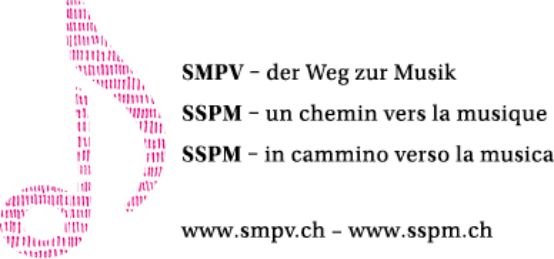"We don't just want to train graduates, we also want to put musicians on the job market.

Frank-Thomas Mitschke has been rector of the ASMP and the Kalaidos College of Music since the beginning of the year. In an interview, he talks about the profile and future of private music training.
Lucas Bennett: Thomas, since January 1 of this year you've been the new Director of the Swiss Academy of Music and Music Pedagogy (ASMP) and of the Music Department at the Kalaidos University of Applied Sciences. What made you decide to take on these tasks?
Frank-Thomas Mitschke: After 18 years as director of the Leipzig School of Music, I felt the need to take on a new challenge; rather than finding a well-established structure, I wanted to be able to participate in the elaboration and development of a constantly evolving project, as is the case with ASMP and Kalaidos.
L.B.: How were you received at the university and in Switzerland in general?
F.-T. M.: The welcome in Switzerland has been very friendly. I have many qualified colleagues here and, forty days after my official debut, I'm still delighted with my decision (and that of the Board of Trustees) to take over the management of ASMP/Kalaidos Music.
L.B.: The professional studies offered by the Kalaidos College of Music continue the more than one-hundred-year-old tradition of private professional music training in Switzerland. It's been a long road, but the transfer to the Bologna system has now been successfully completed. What is the current course of study like, and what are its advantages?
F.-T. M.: First of all, I'd like to say that I have the greatest respect for the remarkable work accomplished to date by all those involved. Of course, I'd like to make special mention of founding rector Valentin Gloor's conception and implementation work. It's thanks to him that the Bachelor's (classical and jazz & contemporary music) and Master's courses in music pedagogy (classical and jazz & contemporary music) and interpretation ("performance") can be taken at the Haute école de musique. Students can now organize their studies individually and obtain a nationally and internationally recognized diploma. A unique feature of music studies at Kalaidos is that there is no age limit for either students or teachers. This means that those considering a career change are very welcome. What's more, anyone who passes the entrance exam is automatically guaranteed a place!
L.B. Professional training at the Kalaidos School of Music is, as you said in your introduction, a "work in progress" in the best sense of the word. What do you see as the priorities for the future?
F.-T.M. We need to actively market the school. First of all, we need to promote the "Kalaidos School of Music" brand and establish it in the higher education market. We also need to strengthen our profile. I envisage a positioning that is clearly geared towards professional outlets. We don't just want to train graduates, we also want to put musicians on the job market - that's one of the principles guiding our actions. Another important point is networking: we need to find strong partners, including in the professional fields in which our future graduates will be working. This means maintaining close contacts with music schools, the SSPM, amateur music associations, as well as orchestras and choirs. We have already found a very creative partner in the argovia philharmonic. The Mendelssohn Days in Aarau will provide a good opportunity to establish cooperation with this orchestra. Finally, I'd also like to strengthen communication within the university. We are in the process of setting up a rectorate comprising the heads of the various study programs (Xavier Pfarrer, MA Performance, Alain Dobler, MA Pedagogy, Frank-Thomas Mitschke, BA, editor's note), as well as a departmental directorate made up of the rectorate and representatives of the teaching staff, research and students.
L.B.: What opportunities do you see for expanding the range of study courses on offer?
F.-T.M.: I see the development of continuing education with postgraduate courses as a priority. This type of offering would also help to strengthen our profile and raise our profile. It's not a question of going it alone, but of seeking cooperation with other music colleges wherever possible; I can imagine joint offerings in certain sub-fields. We should also examine the possibility and relevance of offering joint training courses with the other departments of the Kalaidos University of Applied Sciences (economics and health, editor's note). We depend on the expertise of many competent people, and I am very open to ideas and suggestions for postgraduate courses.
L.B.: Fundraising remains as important as ever for the development of the university. Where would you like to place the emphasis in this area?
F.-T.M.: I see an opportunity in creating an emotional bond between donors and sponsors and the school. The fact that we are the only music academy in the canton of Aargau could be an opportunity for long-term support. It would also be desirable to set up an association to support the activities of the ASMP/Hochschule für Musik Kalaidos. I am, of course, happy to discuss ideas for sponsorship and cooperation. In this context, I would like to point out that donations to the ASMP, a tax-exempt foundation, are tax-deductible. Our efficient and cost-effective administrative structure ensures that donations are used directly for their intended purpose. In addition, students can receive assistance through our support fund.
Contact: frank-thomas.mitschke@kalaidos-fh.ch









